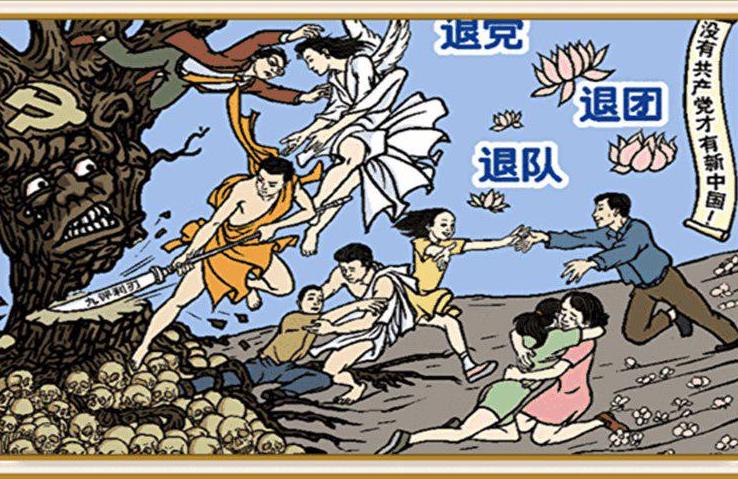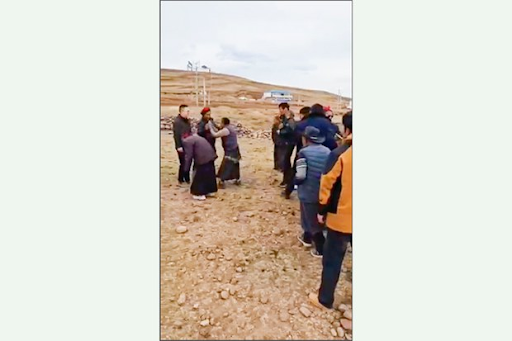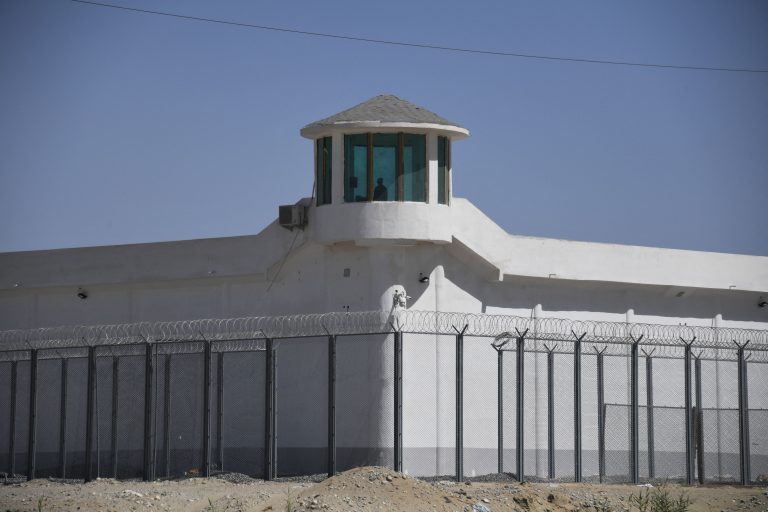CALGARY, Alberta — Falun Gong practitioners held a rally in front of the Chinese Consulate in Calgary on Monday, April 22, 2024, to mark 25 years since the April 25 peaceful appeal in Beijing.
The 1999 appeal at the State Council Appeals Office near Zhongnanhai, in Beijing, saw more than 10,000 practitioners from across the country gather to demand the protection of their constitutional right to believe.
In response, the Chinese Communist Party (CCP) intensified its repression and, three months later, openly launched a brutal persecution campaign against the spiritual group that has killed thousands and continues to take place in China today.
Falun Gong, also called Falun Dafa (法輪大法), is a meditative discipline of the Buddhist tradition rooted in China’s millennia-old heritage of spiritual cultivation. It features five qigong meditation exercises and moral teachings centered on the fundamental principles of truthfulness, compassion, and forbearance.
First taught to the Chinese public by Master Li Hongzhi in 1992, Falun Gong attracted tens of millions of people across the country.
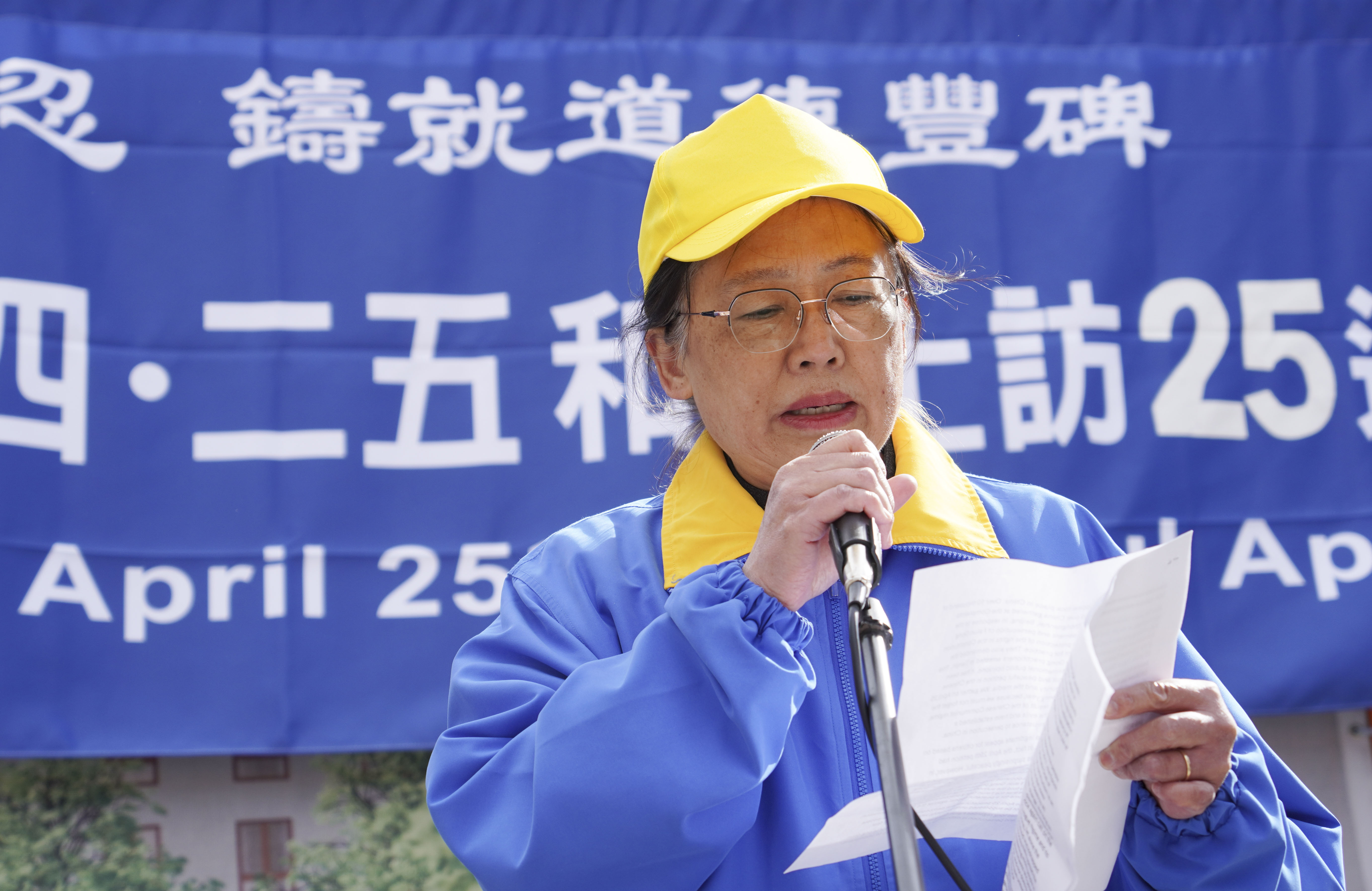
Success
You are now signed up for our newsletter
Success
Check your email to complete sign up
For most of the 1990s, Falun Gong was well-received by both the Chinese public and authorities, who praised Master Li’s teachings for bringing good health and boosting the moral character of the nation. In early 1999, state media reported that around 100 million people were practicing Falun Gong.
Calm before the storm
But the rapid growth of such a popular group, not subject to the control of the Communist Party, eventually worried the political leadership under then-General Secretary Jiang Zemin.
Jiang and his allies worked to craft a narrative that, despite its teachings stressing non-violence and eschewing involvement in political matters, Falun Gong was an imminent danger to the security of the CCP and its rule.
The April 25, 1999 appeal was preceded by the arbitrary detention of 45 Falun Gong practitioners in the city of Tianjin on April 23 and 24. The practitioners were beaten and arrested by Tianjin riot police for appealing against an article in the Tianjin College of Education magazine that slandered Falun Gong as a danger to the public.
News of the use of violence against practitioners and the need for Beijing’s authorization to release the detained practitioners spread across the country and, on April 25, thousands of practitioners voluntarily went to Beijing to hold the largest appeal since the 1989 Tiananmen Square protest.
“The April 25 petition had neither shouting nor protest signs; it was surprisingly peaceful,” said Mei Chen, a Falun Gong adherent who spoke at the rally in Calgary. “This peaceful appeal was praised by international public opinion, and has been referred to as ‘the largest, most rational and peaceful petition in Chinese history.’”
Chen said that despite the non-violent nature of the demonstration, Chinese state media reported negatively on the appeal, denouncing it as a “siege.”
“The purpose of the [use] of slanderous words, [including] “an attack on Zhongnanhai,” was to discredit the peaceful appeal and legitimize their persecution,” she said.
“In the following 25 years, the Chinese Communist Party mobilized all state resources and spent astronomical amounts to carry out a protracted and brutal persecution of Falun Gong practitioners, including organ harvesting.”
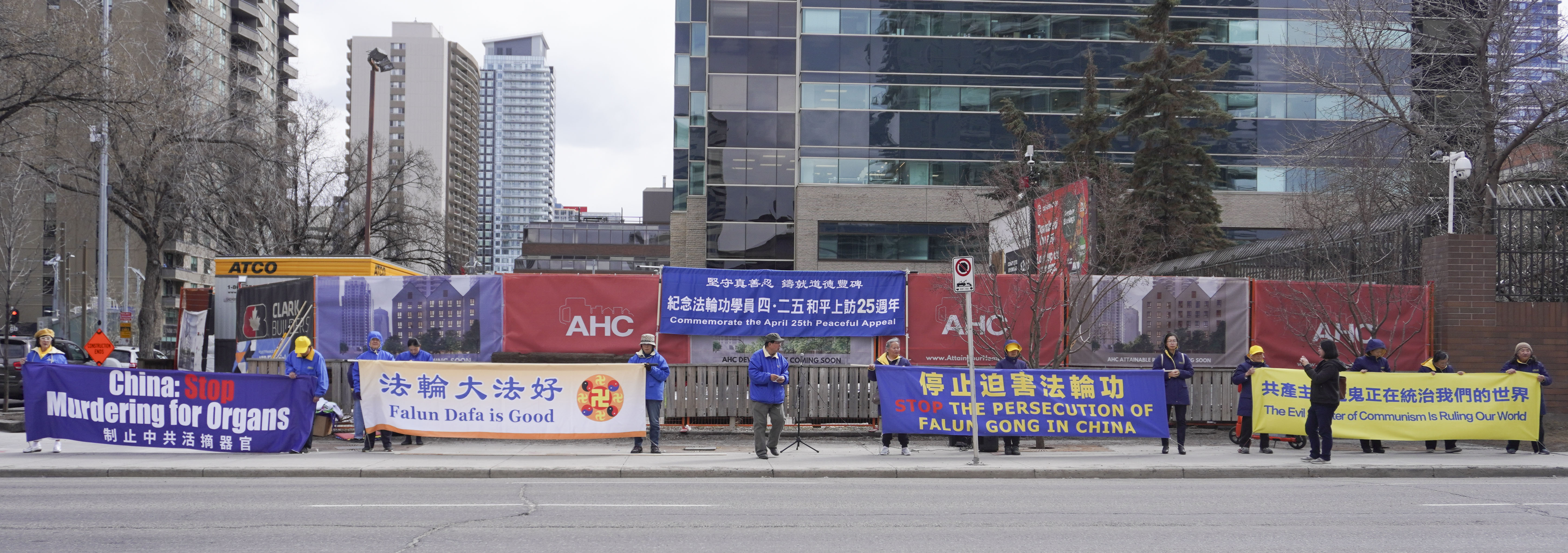
Seeing the large number of people gathered by the State Council, then-Chinese Premier Zhu Rongji held talks with Falun Gong representatives, and promised that the authorities would not move against the faith group.
By nightfall, the practitioners detained in Tianjin were released on instructions from the central government.
25 years of persecution
But this did not change Falun Gong’s long-term situation. According to the Falun Dafa Information Center, on the night of April 25, 1999, Jiang Zemin wrote a highly confidential letter to other relevant leaders charging that there were “masterminds behind the scenes” of the April 25 incident.
In a June 7 speech at a meeting of the central government’s Politburo, Jiang Zemin called the April 25 appeal “the most serious incident since the political turbulence in 1989.”
Just over a month later, on July 20, Jiang officially announced a total ban on Falun Gong, prompting unprecedented waves of arrests and killings across the country. Twenty-five years later, detentions and deaths in custody continue to be reported daily.
In addition to jailings, harassment, and forced labor, human rights groups believe thousands of Falun Gong adherents have been murdered for their organs in China’s state and military-run hospitals. Reports suggest forced organ harvesting is now also being practiced on the Uyghurs and other Chinese ethnic and religious minorities, as well as even members of the general public.
The commemoration of the April 25 appeal is an annual event held by Falun Gong practitioners worldwide. This year has seen rallies and parades since the weekend in countries such as the U.S., Canada, U.K., Japan, New Zealand, Bulgaria, Sweden, South Korea, and Singapore.
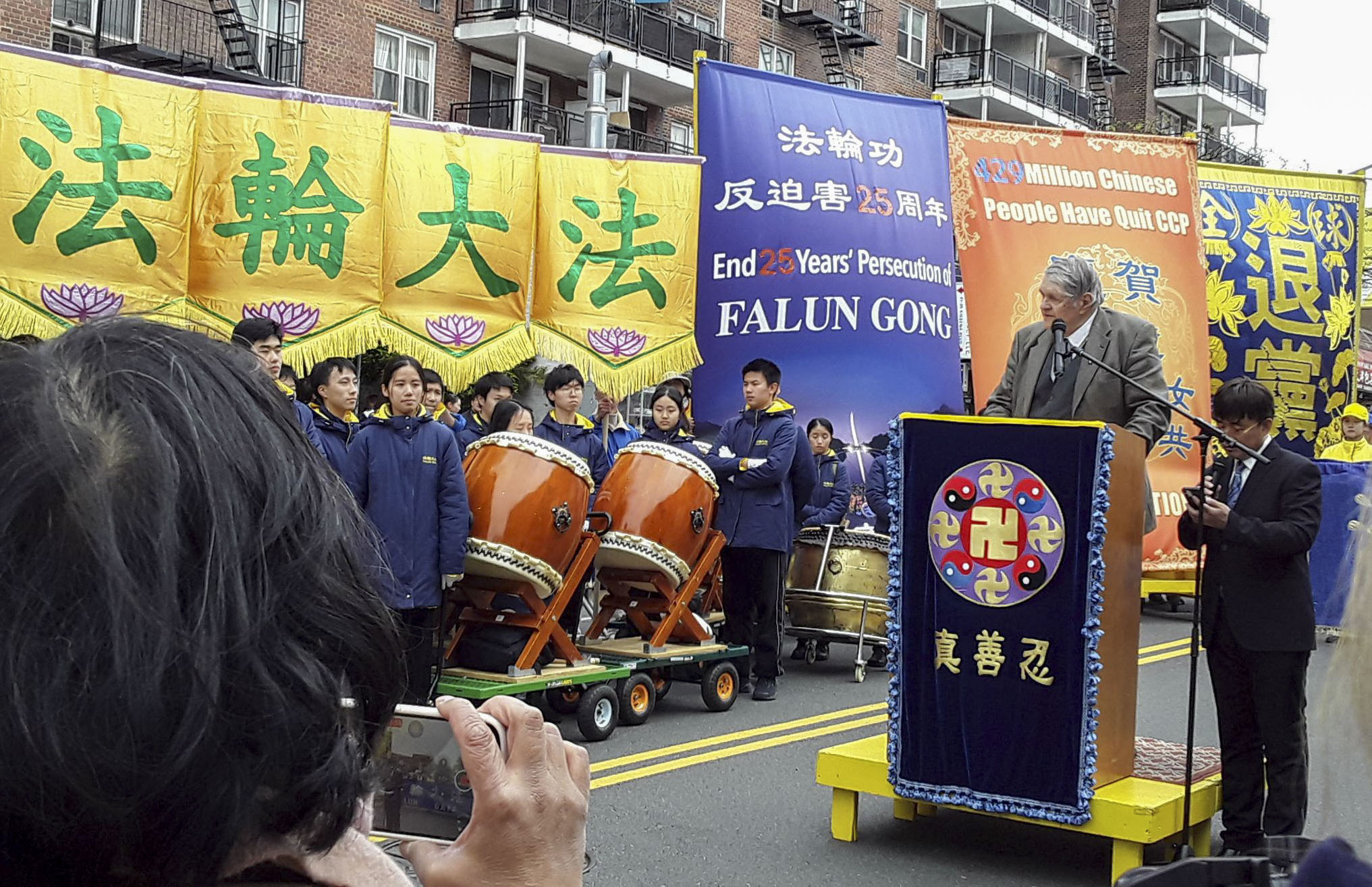
Speaking at the rally held in the Flushing neighborhood of Queens, New York, on April 21, 2024, Frederick Newcomb, honorary chairman for the World Human Accountability Organization of the United Nations, said that Falun Gong demonstrations are in line with the spirit of America.
“Whether [in] China, the United States, or countries around the world, the celebration against tyranny and oppression is always well founded and deserved,” he said in a speech.
“The purpose of the 4.25 rally is to show the public the beauty of Falun Dafa, expose the lies of the CCP, and call on the Canadian government to work together to stop the CCP’s brutal persecution of Falun Gong,” said Ping Zhang, a Falun Gong practitioner at the rally in Calgary.
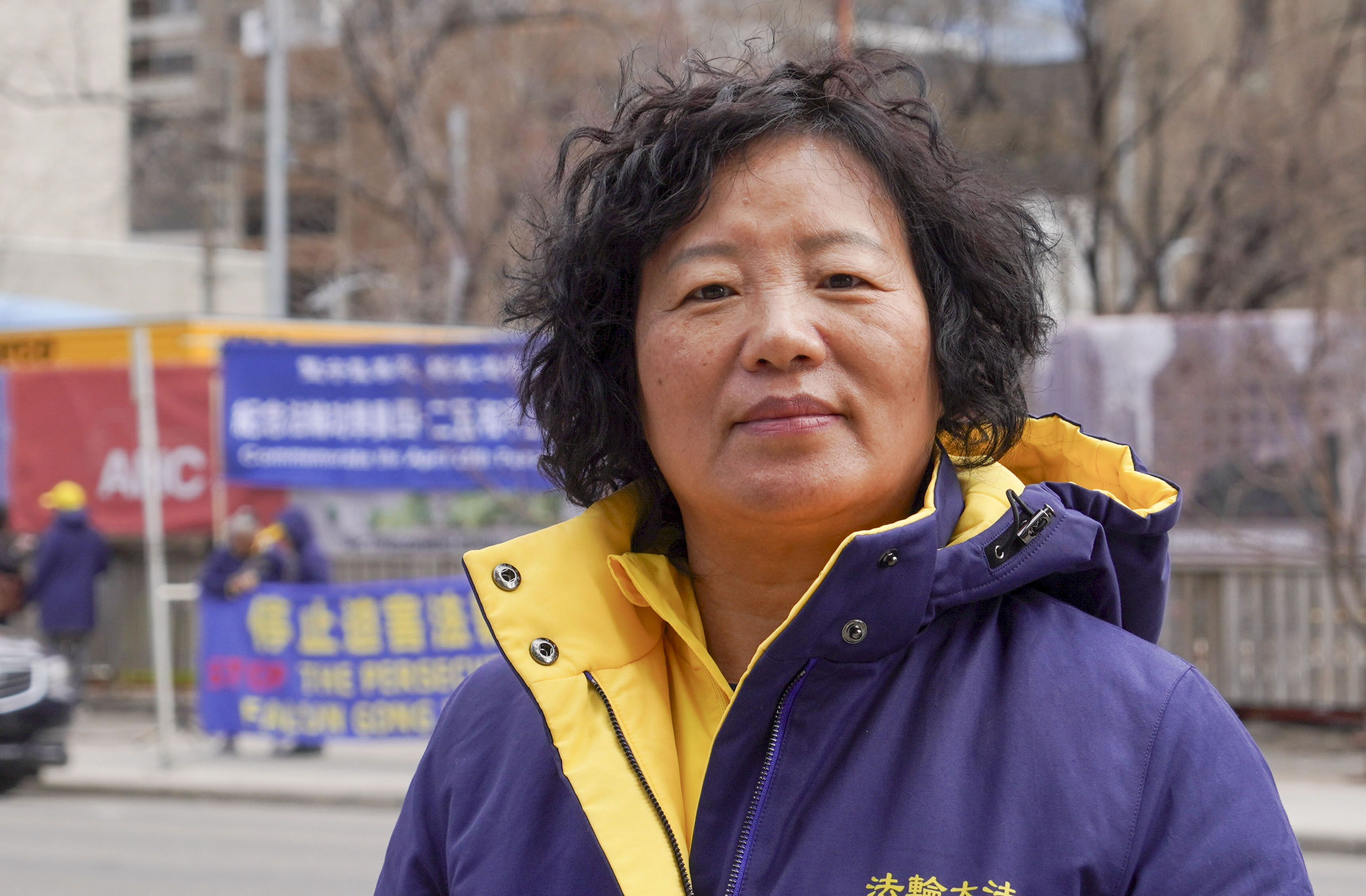
Back in China, Zhang independently ran a mechanical and electrical equipment company but was forced to shut it down in 1999 when the persecution began. She escaped persecution in 2015 and has been participating in rallies in front of the Chinese consulate in Calgary for the past nine years.
“Canada is a democratic country and its people are kind and tolerant,” she said. “Falun Gong is supported and loved by the government and many people in Canada.”
During her speech, Mei Chen addressed the staff at the Chinese consulate in Calgary, asking them to become aware of the CCP’s record of human rights violations.
“I would like to advise people in the CCP consulate to awaken quickly, seize the opportunity, recognize the nature of the CCP, quit the evil organizations, and choose a better future,” she said. “The CCP does not represent China, let alone the Chinese people.”
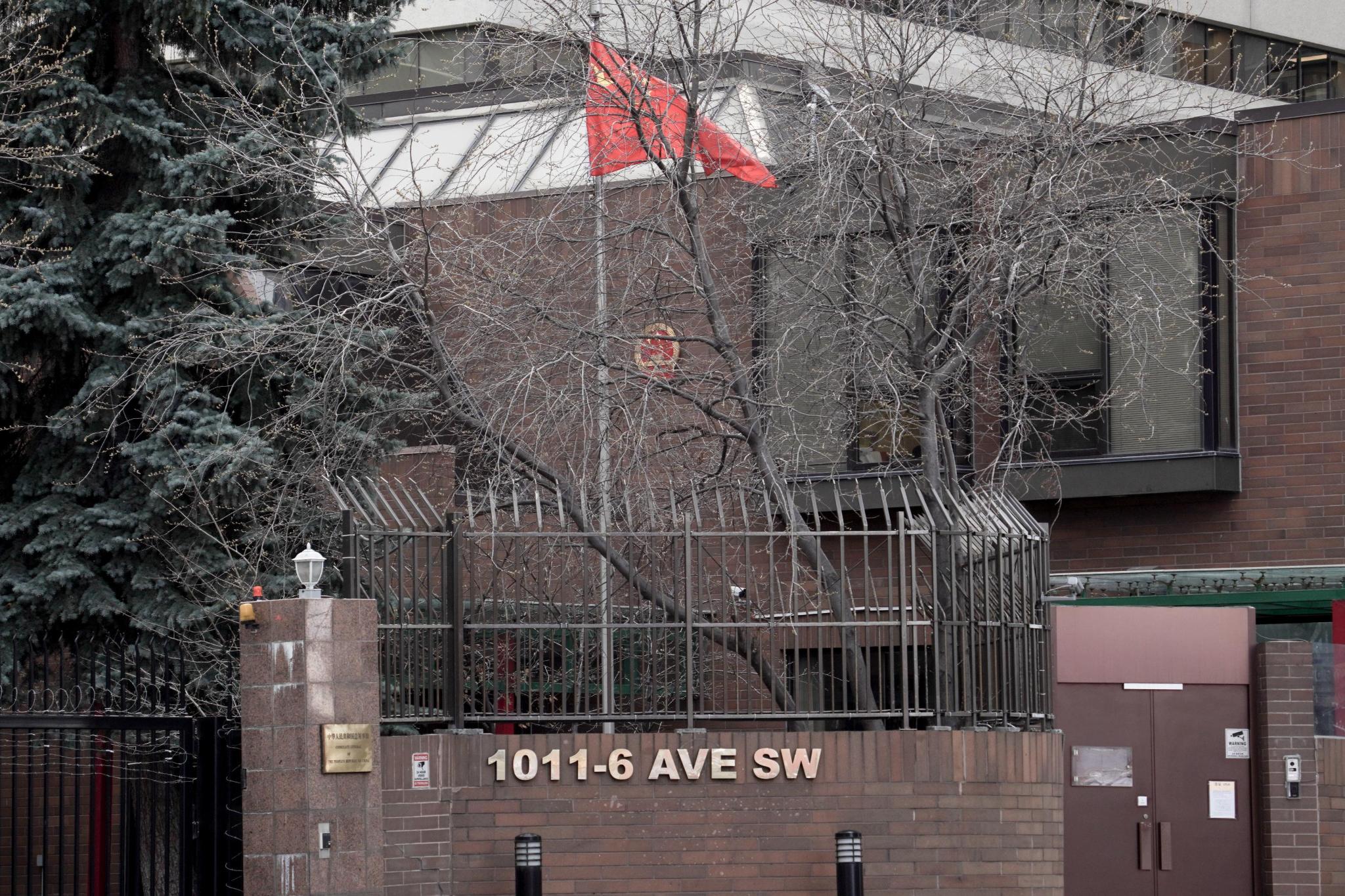
“After 25 years, overseas Falun Gong practitioners are still standing here, spreading truthfulness, compassion and tolerance; and exposing the numerous crimes of the Chinese Communist regime,” she added. “We stand here because we firmly believe in the great power of good and that justice will eventually defeat evil.”
The Chinese Consulate in Calgary did not respond to a request for comment by the time of publication.
Leo Timm and Ila Bonczek contributed to this report.




